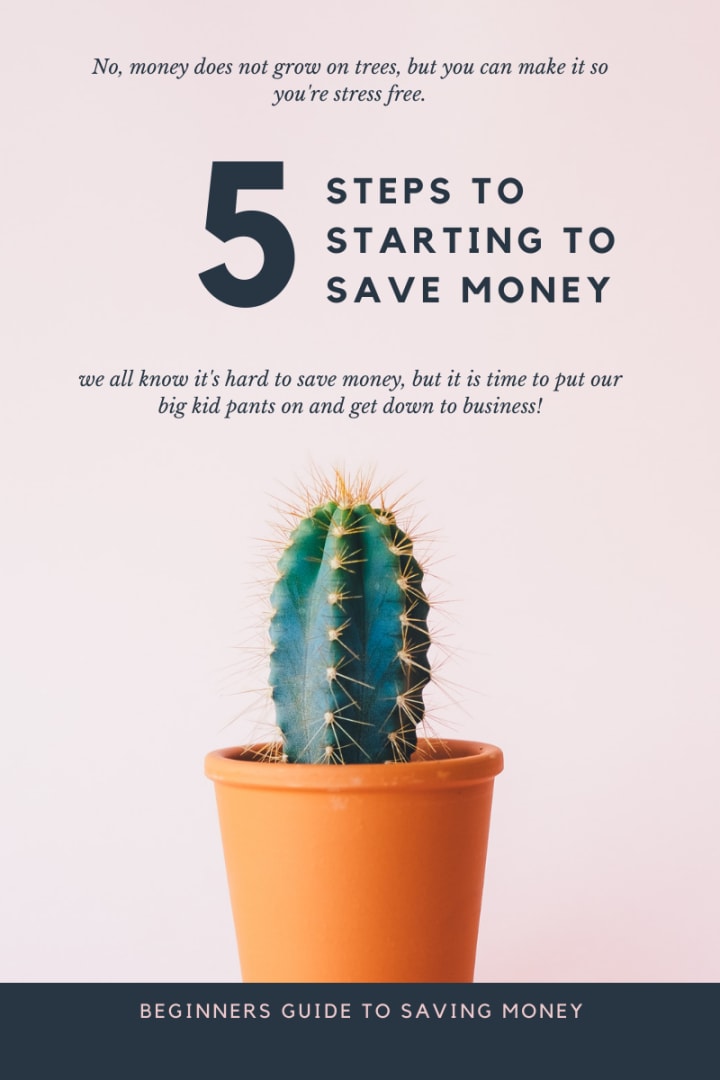
There is never a time when saving money is not a good idea. But for some reason it's one of the hardest things for any of us to do. Impulse buys, bills—How do we find a balance? Here's how to stop the spending habits.
1. Set realistic goals.
Set a goal for a month from now, three months from now, six months from now, and a year from now—whether it be saving money to make your car payment on time every month, saving money to get your mom that necklace she's always wanted, or saving money to pay off any of your debit. When you are making these goals, make sure they are realistic, not only in a financial point of view, but in their time frames as well. Obviously, if you work making minimum wage, you won't be saving up money for your college semester in one year. Does that make sense?
2. Write each date you set, and the goal attached to it, on an envelope.
These envelopes will be where you deposit your money from now on. Put them somewhere that you will be forced to look, every day. Now, pick up the one most important to you, and put a number one in the upper right hand corner. Do the same with the second most important, and third, and fourth. This next part can go many different ways. You can either divide all your leftover money (after expenses and bills) equally, and deposit the same amount of money in each envelope, or you can do it the way I do it, which I have found to be very successful.

3. Figure out all your bills and other expenses, as well as your monthly income.
This is going to help you decide which way you want to approach your financial breakdown into the envelopes—equally, or my way. Are you ready? Okay, let's dive in. So, calculate your total expenses (gas, phone, car insurance, car payment, food, etc.), and now calculate your average monthly income, or as close as you can possibly get. Subtract your monthly expenses from your monthly income. This number is what you have left to put towards your envelopes.
4. Now it is time to break it down... stay with me.
The financial goal that is most important to you gets 40 percent of your leftover money. The second most important financial goal gets 20 percent, and the third and fourth financial goals get 10 percent. Now, I know what you're about to say: "That's only 80 percent." I know. Guess what? That last 20 percent is yours to make whatever impulse buys you can afford with it. If it's outside of that 20 percent, guess what? You're not getting it. If it is ONE ITEM that takes up your 20 percent, that is the only thing you are getting for the entire month.
5. Now this is most MOST IMPORTANT TIP so pay attention.
Microsoft Excel needs to be your best friend. So you don't go digging in those envelopes all the time to figure out what you have in there, open your excel app or go online and use the Google version, and make a "Date" column, a column for each envelope, and a column to keep track of the amount of money you are able to split into the envelopes. In the "Date" column should be your pay days. Keep track of what you put in each envelope and when. This has helped me so much in staying on track with my financials.
*While you are on Excel, I want you to start another spreadsheet, or create another table on the same page; It doesn't matter to me. Go into your bank account, and total how much you spend on little snack trips to Wawa, how much you use to fill your tank, how much you spend on little things you don't need. Use this as a reminder and motivation that you have a spending problem that needs to be nipped. It's helped me a lot in realizing I may have had a problem in the past with going to Wawa multiple times a day, and was spending up to $300 a month on just Wawa trips alone.*
Eventually, your spending problem will disappear, and you won't need the goals to keep on track. Yes, I know, saving is easier said than done, but if you don't push yourself now, you'll never be able to nip your spending habits in the bud.

About the Creator
Amanda
✨Aspiring Cosmetologist /// 24~libra /// Cat Mom ///
BLM ✊🏿 ✊🏾✊🏽✊🏼✊🏻
LGBTQ+ ❤️🧡💛💚💙💜
Spread the love, receive the love.






Comments
There are no comments for this story
Be the first to respond and start the conversation.